All content on this site is intended for healthcare professionals only. By acknowledging this message and accessing the information on this website you are confirming that you are a Healthcare Professional. If you are a patient or carer, please visit the Lymphoma Coalition.
The lym Hub website uses a third-party service provided by Google that dynamically translates web content. Translations are machine generated, so may not be an exact or complete translation, and the lym Hub cannot guarantee the accuracy of translated content. The lym and its employees will not be liable for any direct, indirect, or consequential damages (even if foreseeable) resulting from use of the Google Translate feature. For further support with Google Translate, visit Google Translate Help.
The Lymphoma & CLL Hub is an independent medical education platform, sponsored by AbbVie, BeOne Medicines, Johnson & Johnson, Miltenyi Biomedicine, Nurix Therapeutics, Roche, Sobi and Thermo Fisher Scientific and supported through educational grants from Bristol Myers Squibb, Lilly and Pfizer. Funders are allowed no direct influence on our content. The levels of sponsorship listed are reflective of the amount of funding given. View funders.
Now you can support HCPs in making informed decisions for their patients
Your contribution helps us continuously deliver expertly curated content to HCPs worldwide. You will also have the opportunity to make a content suggestion for consideration and receive updates on the impact contributions are making to our content.
Find out more
Create an account and access these new features:
Bookmark content to read later
Select your specific areas of interest
View lymphoma & CLL content recommended for you
Tafasitamab in R/R DLBCL: Real-world outcomes, and maintenance of CD19 expression
Do you know... What have studies shown regarding antigen expression following tafasitamab treatment in patients with R/R DLBCL?
Results from studies of real-world outcomes and CD19 expression following tafasitamab treatment in patients with relapsed/refractory (R/R) diffuse large B-cell lymphoma (DLBCL) provide insights into the sequencing of CD19-directed therapies in this patient population.
Data suggest that tafasitamab may be most effective when used earlier in the R/R DLBCL setting, particularly after 1 prior therapy. Additionally, the CD19 antigen is retained on tumor cells following treatment with tafasitamab, suggesting the potential to treat patients with R/R DLBCL with subsequent CD19-targeting therapies.
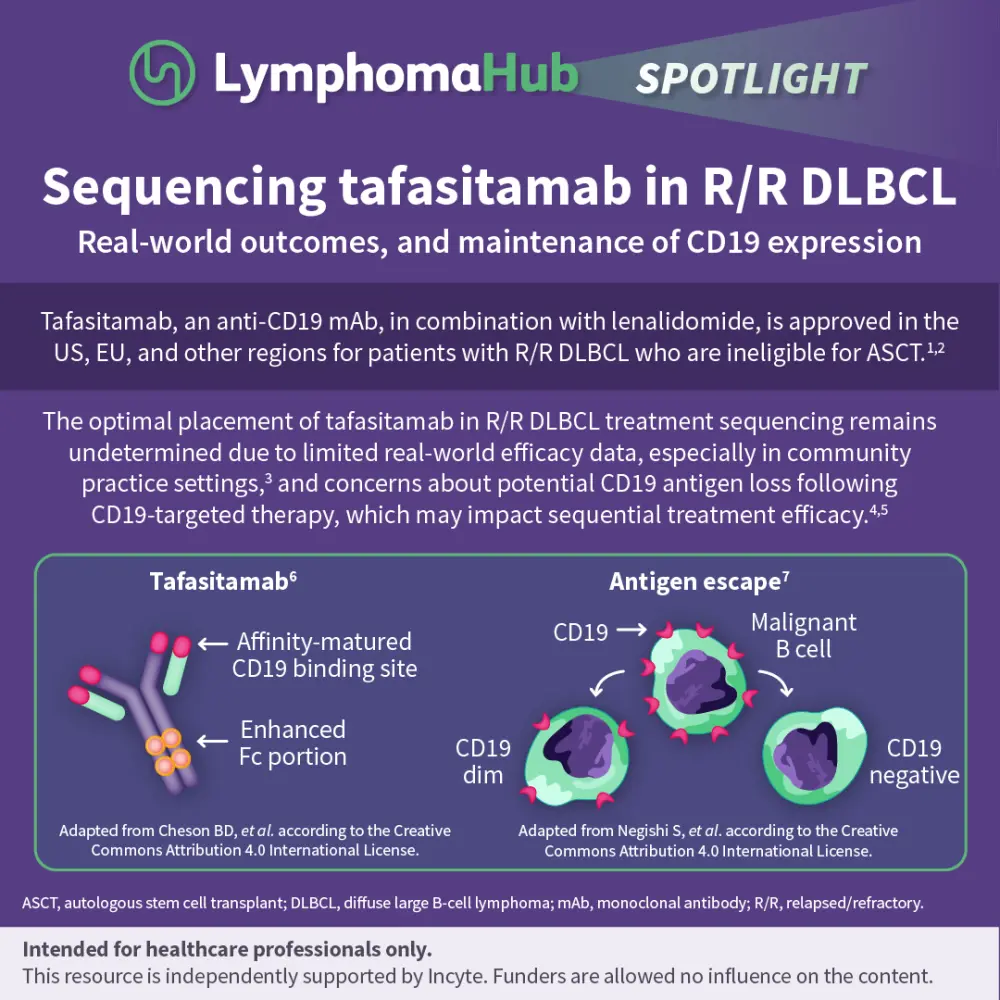
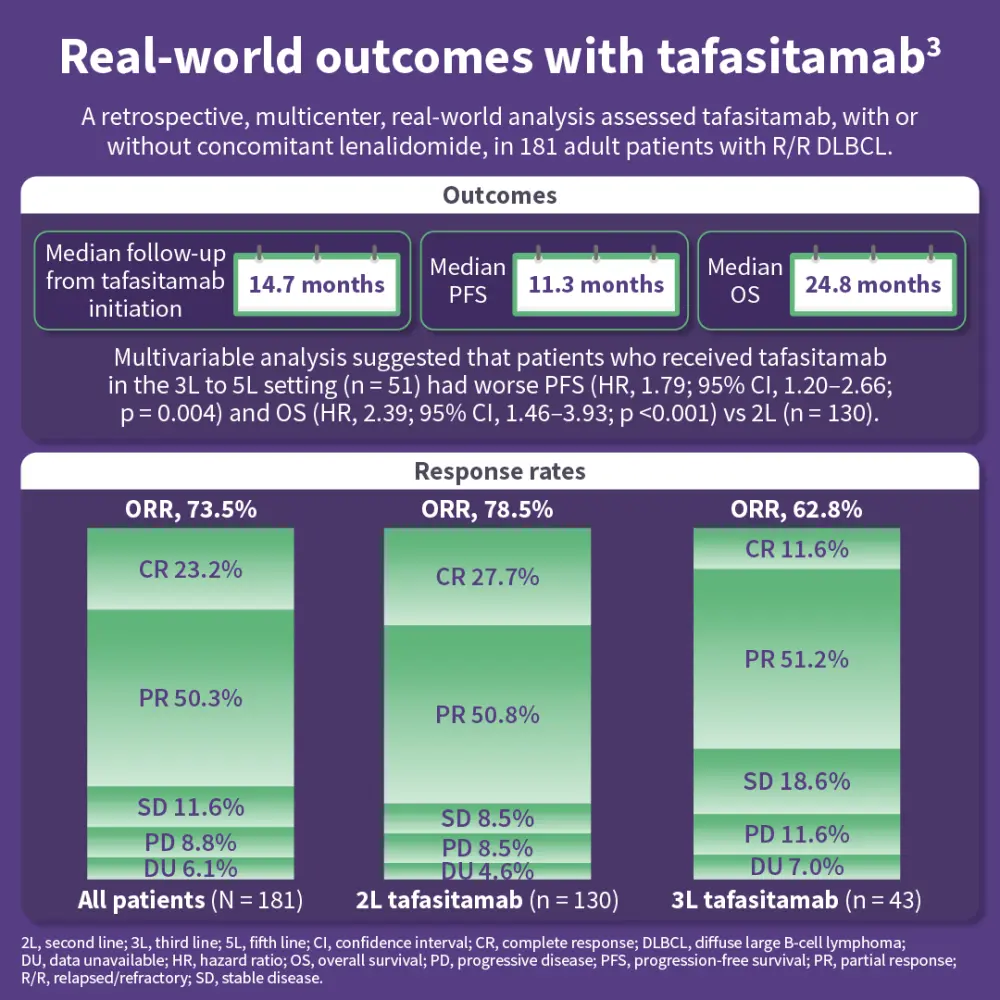
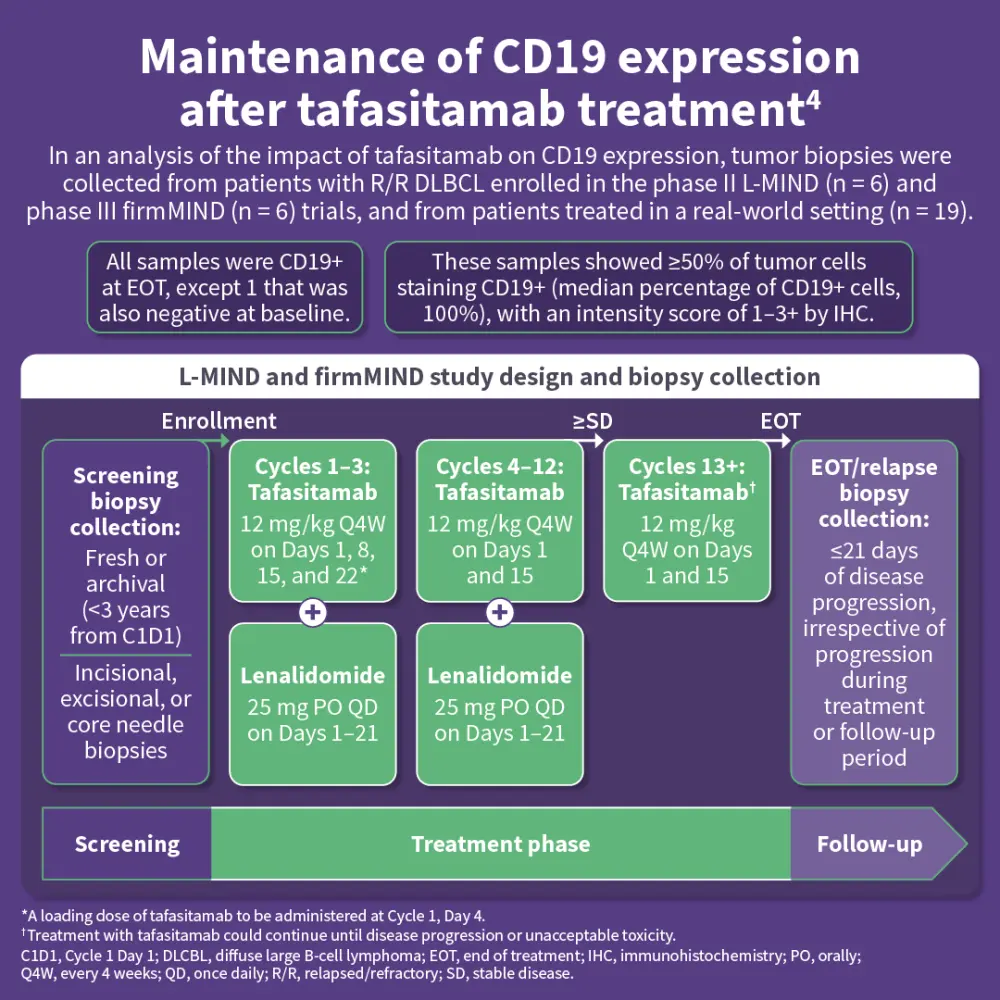
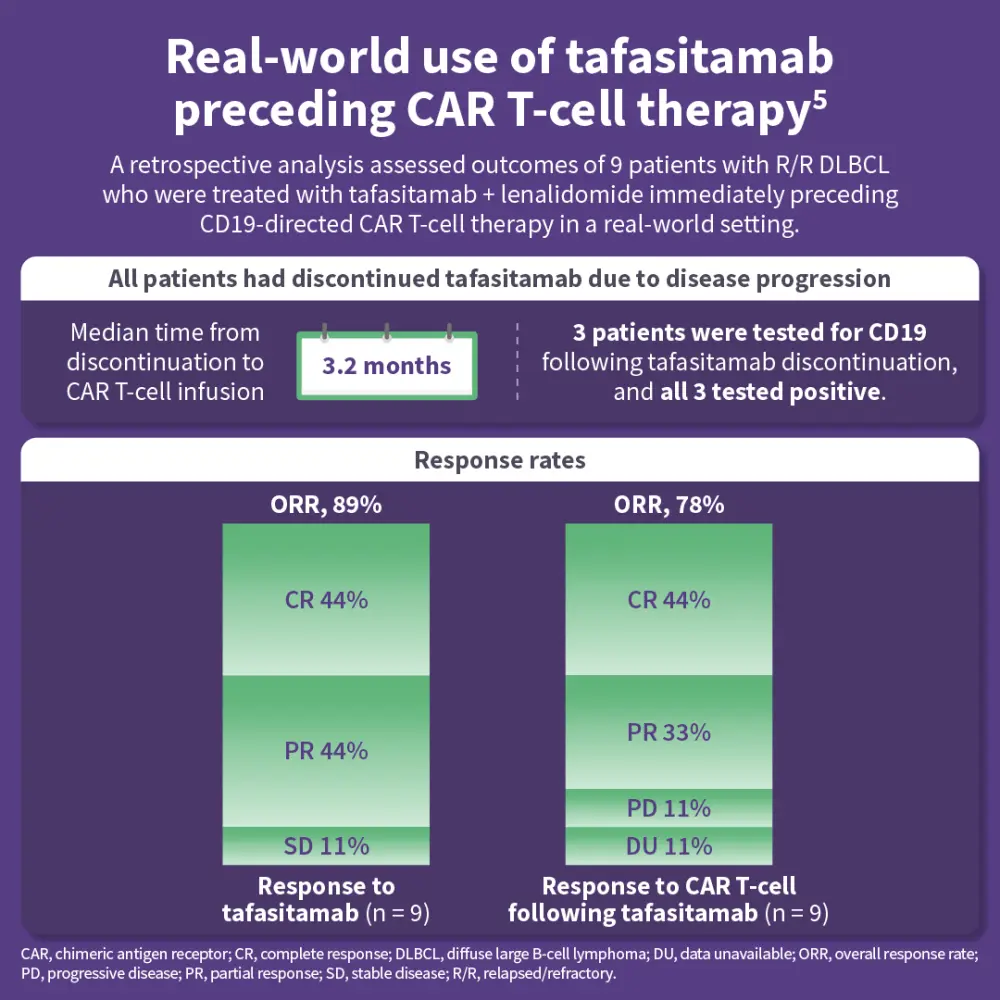
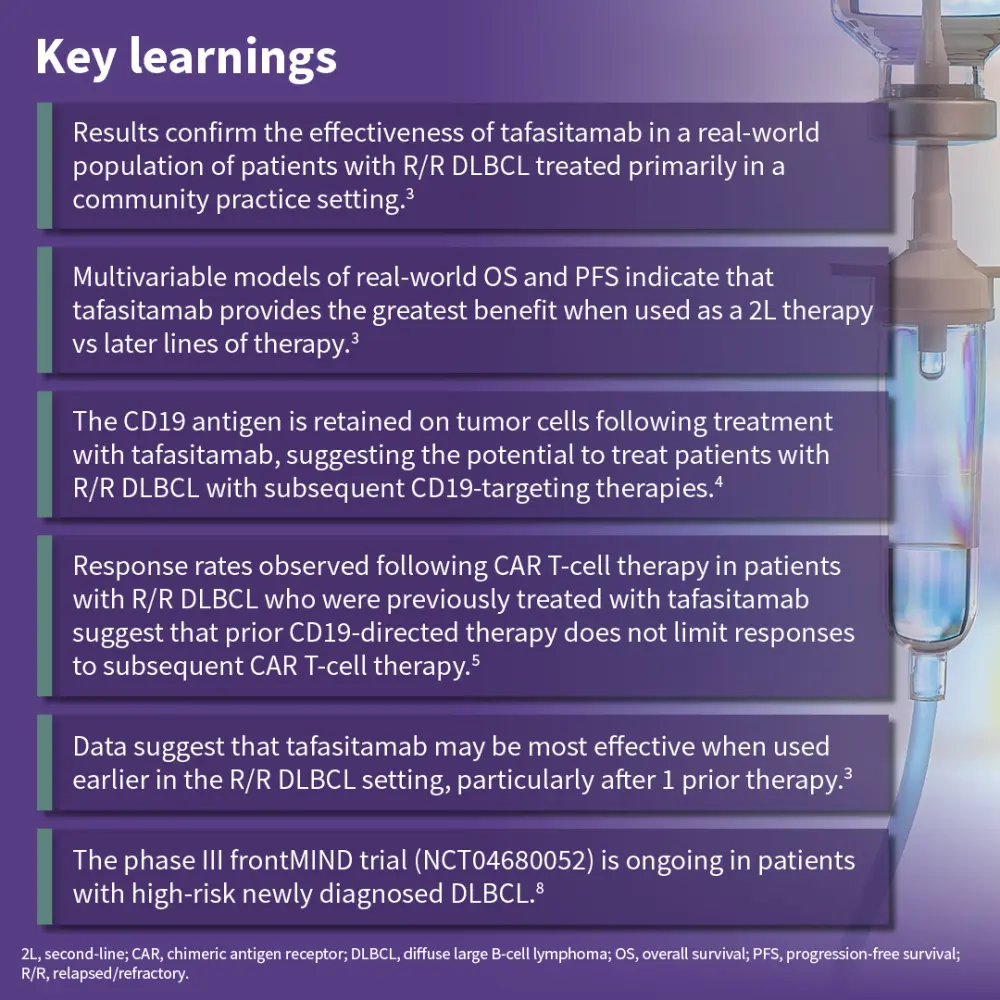
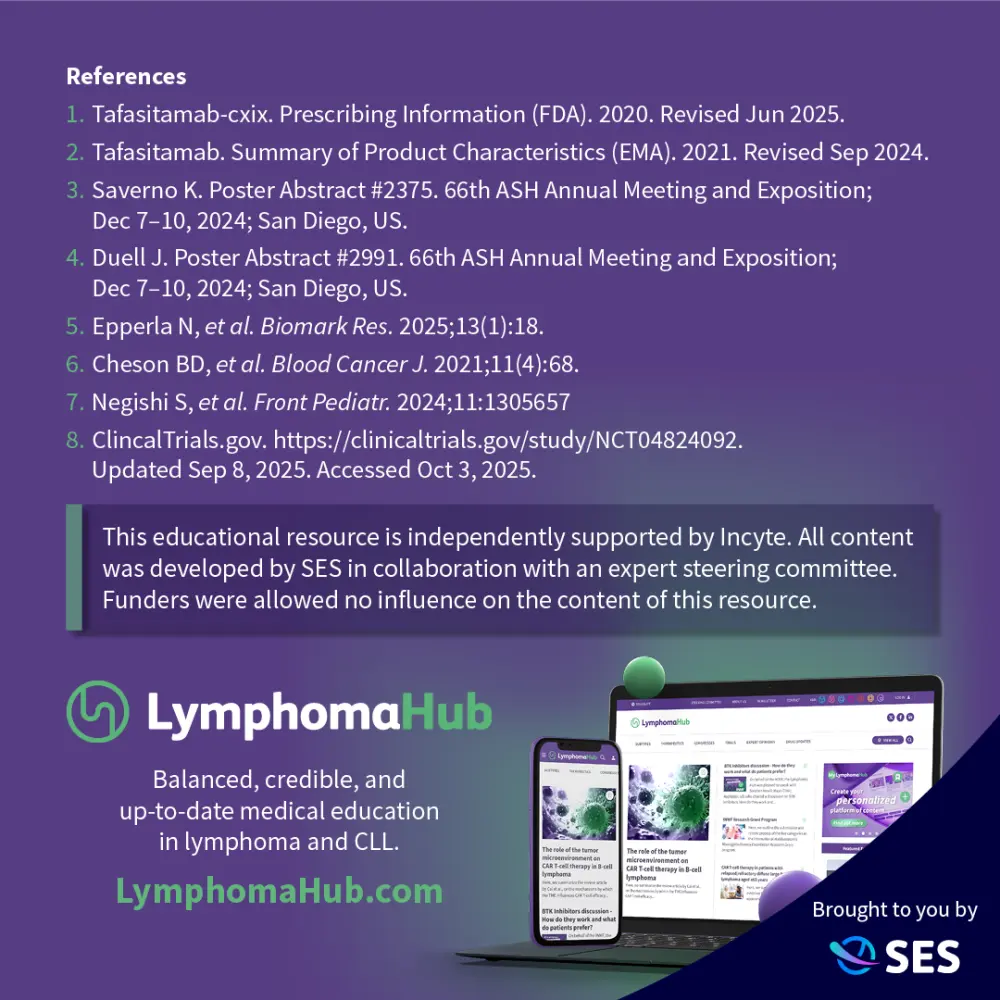
This educational resource is independently supported by Incyte. All content was developed by SES in collaboration with an expert steering committee. Funders were allowed no influence on the content of this resource.
Please indicate your level of agreement with the following statements:
The content was clear and easy to understand
The content addressed the learning objectives
The content was relevant to my practice
I will change my clinical practice as a result of this content

